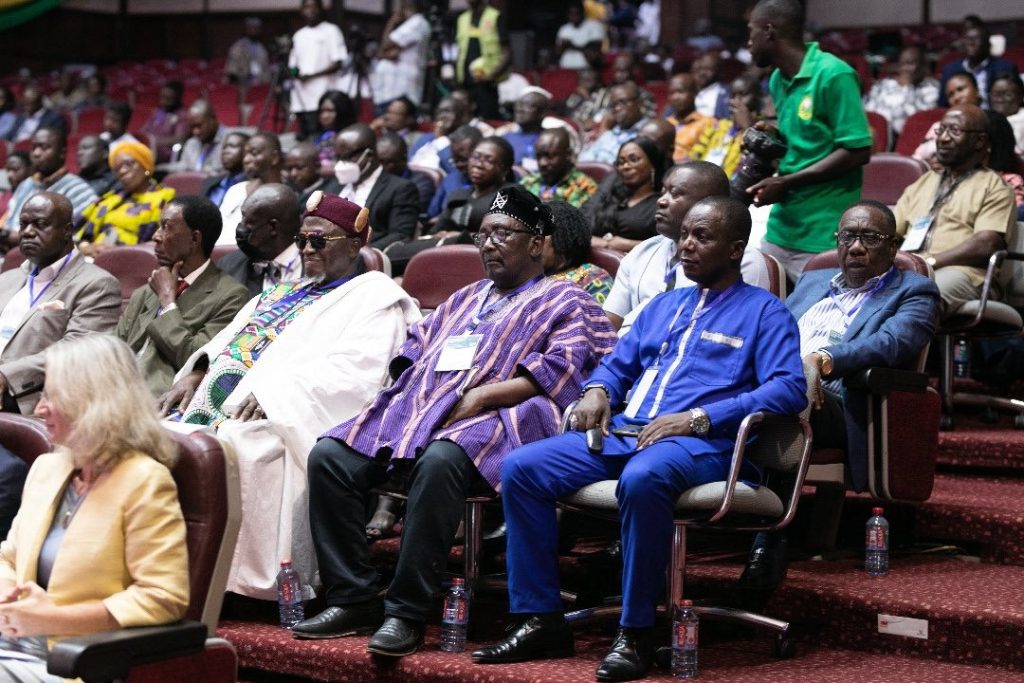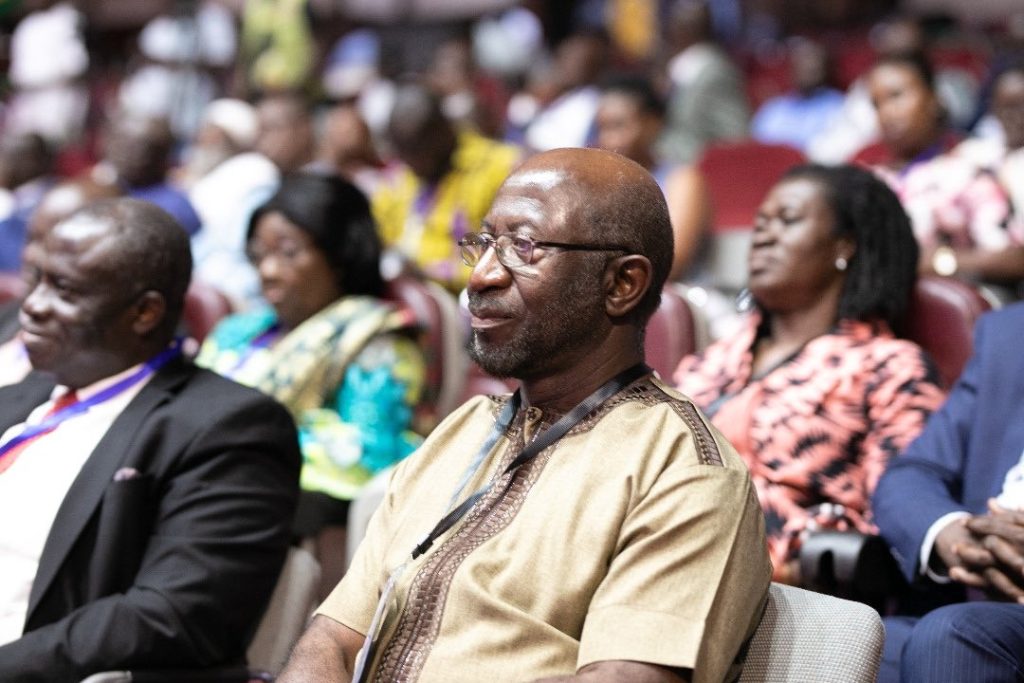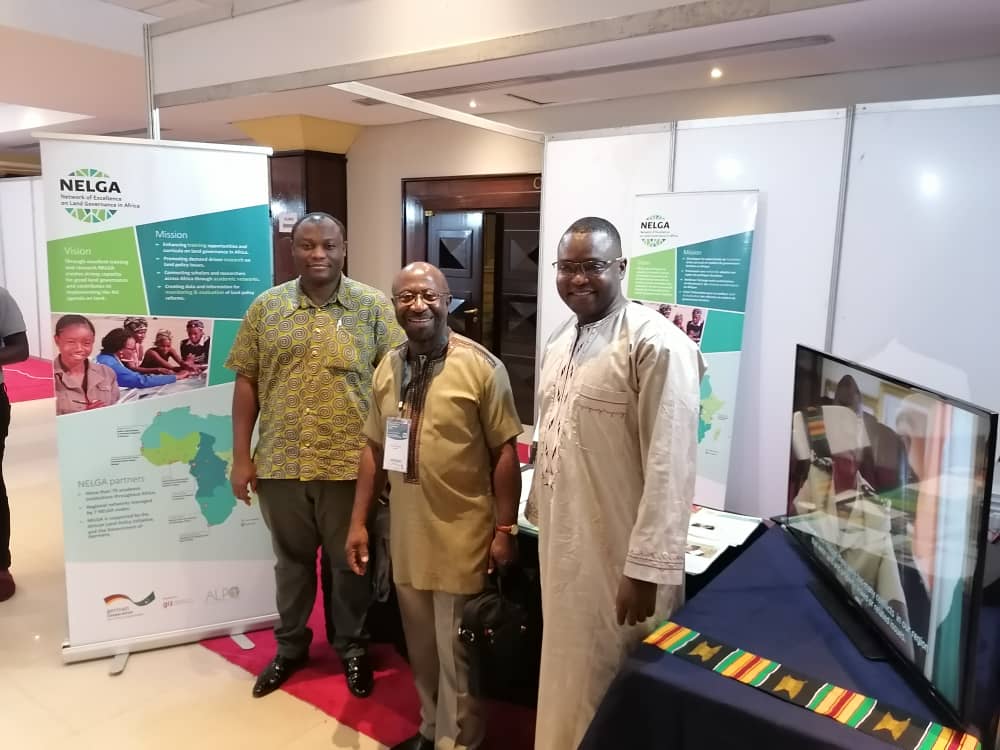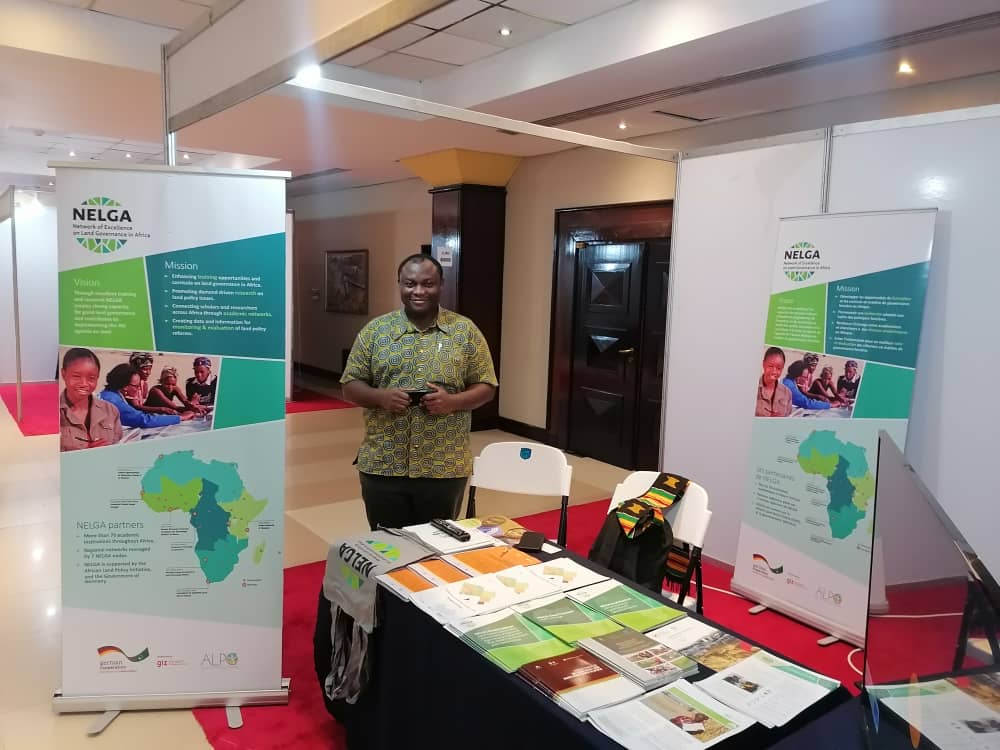Tag: Land rights
NELGA’s Role in Advancing Community Land Rights at the Fourth Regional Conference
The Fourth Regional Conference on Securing Community Land Rights in Africa, held in Arusha, Tanzania from September 12-14, 2023, brought together delegates from across the continent to address the critical issue of community land rights.
Delegates at the conference emphasized the importance of implementing community titling processes as a means of protecting rural lands from encroachment and conflict. They recognized that the roles of National Land Institutions vary from country to country. For instance, Ethiopia’s ministry primarily focuses on resolving rural land tenure insecurity through land registration to mitigate conflicts, while Liberia’s Land Authority serves as a central hub for land administration and law enforcement to prevent overlapping functions among ministries.
The conference also candidly discussed common obstacles to effective implementation of the AU agenda on land, including institutional capacity limitations, challenges in educating communities about land policies, and inadequate funding for infrastructure and documentation. Key recommendations included improving land information systems, educating rural communities about land registration, monitoring data trends, and conducting research on land rights.
Dr. Dominico Kilemo, a NELGA advisor for Eastern Africa, highlighted two crucial aspects in line with NELGA’s mission. He advocated for closer collaboration between National Land Institutions and universities to inform decisions and policies regarding community land rights. Additionally, he proposed the organization of national stakeholder forums by National Land Institutions to facilitate robust policy dialogues on this issue.
The conference saw participation from influential development partners like the United Nations Economic Commission for Africa (UNECA), the African Development Bank (AfDB), the Food and Agriculture Organization (FAO), GIZ, and the Tenure Facility. These organizations engaged directly with land institution representatives, addressing concerns, and providing support for community land rights implementation.
In summary, the Fourth Regional Conference served as a dynamic platform for insightful discussions, knowledge sharing, and recommendations. These efforts collectively contribute to the pursuit of secure community land rights in Africa, underscoring the importance of collaboration and data-driven decision-making in regional land governance.
NELGA Presents: International Women’s Month Q&A Series
Welcome to the International Women’s Month Q&A series on the NELGA website. This March, we are shining a spotlight on the critical contributions that women are making in the field of land governance and land rights. As part of this series, we’re interviewing well-known women in the field affiliated with the network. They’ll talk about their experiences, insights, and points of view on various issues related to land governance, policy, and rights.
The goal of these Q&As is to honour the accomplishments of women in this field while also bringing attention to the problems they’ve had to deal with and the chances for progress and change. We hope this series will encourage more people to get involved in land governance and work for more social justice and gender equity.
We are excited to share the stories and insights of these women, whose actions influence NELGA’s impact in Africa. We hope you will join us in celebrating International Women’s Month and women’s contributions to the land governance field.
#EMBRACEEQUITY
Find the stories here:
New Study: Women’s Access to Land Ownership and Agricultural Development in Baïgom, West Cameroon
Women represent close to 51% of the Cameroonian population, and they are more than 70% active in food and market gardening activities (INS, 2010). Like those elsewhere, the rural women of Baigom are fighting with all the means at their disposal to gain access to land and participate in the agricultural development of this village. To this end, they need land and capital to carry out their actions to make agriculture profitable and ensure food security for their families.
This contribution makes it possible to analyze the socio-economic and cultural context, which is unfavourable primarily to women’s access to land in Baigom. Women active in agricultural production activities are limited by the unavailability of land resources, which constitute a no less negligible factor of production. This State of virtual exclusion of these leading actors in family farming is detrimental to the development of the agricultural economy.
To conduct this study, the methodology adopted focused on primary and secondary sources and field observations. As for the primary sources, socio[1]economic surveys were carried out with a target population of women producers in the village of Baïgom. The socio-economic surveys reached 5% of women over the age of 15; in the end, 150 questionnaires were collected in the five central districts of the village (Nkoupetgom, Nkou gahri, Chaanké, Mbayé, Njissen). Young girls are more like family labourers in peasant agriculture.
The secondary data are the fruit of the literature review and the consultation of the archives. These archives are present in the decentralized services of the State of the specialized institutions which generate official statistics, such as the National Institute of Statistics (INS). The webography was not, moreover, a source of acquisition of specific knowledge in terms of the gender approach to land issues in tropical Africa as a whole. The main results indicate that women’s access to land ownership is low, with only about 8% holding a land title. Furthermore, the juxtaposition of modern and customary rights complicates the marginalization of women’s access to land, negatively impacting agricultural production activities. Despite these obstacles, solutions are envisaged by all the actors to involve women more in the management of rural land.
New Research Explores Relationship between Landownership Inequality and Education Attainment in Kenya
We are pleased to announce the publication of a new research paper by John Kamau Gathiaka, which examines the relationship between landownership inequality and educational attainment in Kenya. The study, published in the Tanzanian Economic Review, used data from the Kenya Integrated Household Budget Survey and the Kenya Population and Housing Census to investigate the Gini of landownership’s influence on the Gini of education attainment across counties and the determinants of educational attainment in Kenya.
While previous research has documented an inverse relationship between unequal land ownership and educational attainment in other countries, the evidence generated in this study does not support this strong relationship in Kenya. The study found that government financing of free education, coupled with bursaries, reduced the impact of landownership inequality.
To reduce inequality in education across countries, the research paper suggests that the government should invest more in education and make policies that promote equality in household income, urbanization, and public employment participation.
We encourage you to read the entire research paper (DOI: 10.56279/ter.v12i2.119) and learn more about the findings and their implications.
Please click here to view the research on our website.
Uncovering Land Governance Challenges in 9 African Countries: NELGA’s Overview of Pastoralism and Small-Scale Farming
NELGA has put out nine country profiles about South Sudan, South Africa, Nigeria, Niger, Burkina Faso, Ethiopia, Tunisia, Egypt, and Mauritania. These profiles give information about pastoralism and small-scale agriculture in these countries. Through research on the current state of land governance in each of these nations, the individual reports have identified policy gaps that could be amended to better support pastoralism and small-scale agriculture.
The profiles also emphasised the significance of regional and international cooperation throughout Africa to enhance land governance structures tailored to local communities’ needs. The profiles included an assessment of existing research on the topics; the effects of climate change; public policy in place to support pastoralism and small-scale farming; the role of women and young people in this space; and regional and international cooperation available to support respective countries. The individual country profiles make recommendations for improving land governance in each country.
NELGA hopes that these reports will help the government improve the way it manages resources while making sure that rights over resources are kept, and international standards are always followed. NELGA keeps working with its African partners to improve how land is managed in all countries involved.
Land Stakeholders Chart Course on Land Transformation in Ghana
From the 6th to the 9th of December, land stakeholders in Ghana will convene at the 2022 National Land Conference to institutionalize a structured arrangement for multi-stakeholder participation in the transformation of the land sector in Ghana.
The conference was organised under the theme – Leveraging National Land Policy, Legislation and institutional Capacity Towards Sustainable Socio-Economic Development by the Ministry of Land and Natural Resources and COLANDEF with the support of the German Development Cooperation, NELGA and other partners.
The conference creates the platform to discuss policy options and experiences, present new research and scalable innovations, foster high-level support and ownership of interventions to tackle land governance, and empower and develop the capacities of the land sector stakeholders. The Conference will establish a multi-stakeholder platform that will monitor the implementation of the conference’s recommendations, including the implementation of Ghana’s new national land policy and provide support for improving land governance and land administration in the country on a sustainable basis.
Click here to read more about the conference.







NELGA Holds Bi-Annual Planning Meeting with Stakeholders
The Network of Excellence on Land Governance in Africa (NELGA) and its regional and technical nodes are meeting virtually on Tuesday, 30th of March 2021, under the African Land Policy Center (ALPC). The planning meeting is a bi-annual event where land governance stakeholders review the next steps towards meeting the AU agenda on land in research, policy reform, and capacity building. The technical planning meeting is part of the continental program comprised by ALPC, NELGA, and GIZ, including land governance technical experts, academics, and key stakeholders, tasked with providing program oversight and recommendations that influence land governance reforms in Africa. The upcoming meeting is expected to bring together diverse stakeholder representatives from PLAAS, DAAD, Kwame Nkrumah University of Science and Technology, Namibia University of Science and Technology (KNUST), Université Gaston Berger (UGB), Hassan II Institute of Agronomy and Veterinary Sciences (IAV), ARDHI University and the University of Yaoundé I.
Youth Engagement for Global Action on Land Rights
Did you know that empowering young people through knowledge and information on land rights can reduce poverty rates and support the development of the African continent?
As the world celebrates the 2020 International Youth Day Edition, we must harness the untapped potentials in our youth as the continent has the largest concentration of young people in the world. It is essential to engage the African youth in knowledge building and encouraging creativity to rapidly transform the continent’s land situations as key for a
The global theme for #IYD2020 calls for Youth Engagement for Global Action; this is the time for African youth to improve their knowledge, advertise for youth-focused research and develop lasting solutions to land governance challenges on the continent. With good land governance and secure land rights, young people can help to stabilize their societies and create more opportuniti
Editorial Board Meeting
Call for applications for research fellowships under the “Network of Excellence for Land Governance in Africa (NELGA)” during the COVID-19 crisis.
The coronavirus (COVID-19) crisis has forced the world into action. The measures taken to contain the virus have impacted the whole of society, including the education sector, with research becoming more important than ever. To help investigating how COVID-19 and related measures potentially affect housing, land, and property rights in African countries, and to deliver high-quality research on the COVID 19 implications for land governance institutions and systems in the long-term, the German Academic Exchange Service (DAAD) offers support for special research fellowships under the “Network of Excellence for Land Governance in Africa (NELGA)” in the form of desk studies.
Applications for the NELGA research fellowships may be submitted throughout the year. For this specialized call we invite you to apply before the 15th of June 2020. The fellowship will be awarded for August 2020.
Download Application proceedures in English or French for more details.
